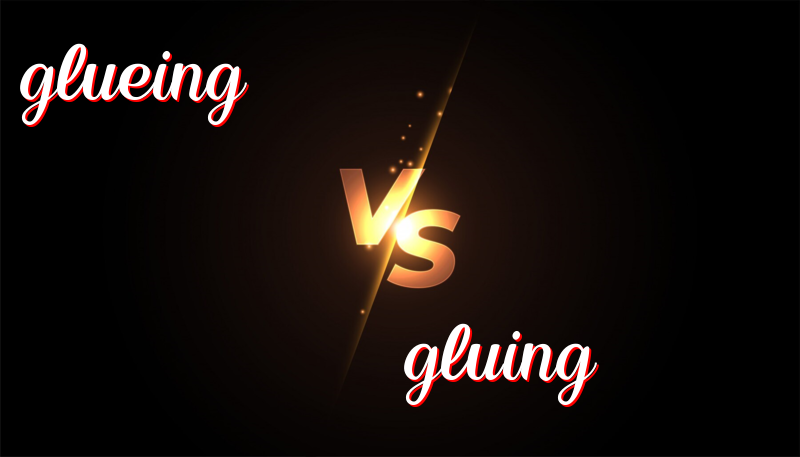Sticky Situations: The Tale of Two Spellings
Glueing vs. Gluing
Sometimes in English, words can look a little different but mean the same thing. “Glueing” and “gluing” are two such words. Let’s see why they are different and how we use them.
History of the Words
Both “glueing” and “gluing” come from the verb “glue,” which means to stick things together using glue. Over time, English speakers started using both spellings. “Glueing” is the older form, while “gluing” has become more common today.
How to Use the Words
Both words mean putting glue on something or sticking things together, but “gluing” is what most people use now. “Glueing” is still correct but not as common.
Example Sentences for “Glueing”
- Mary enjoys glueing paper pieces together in art class.
- The teacher is glueing pictures in the scrapbook.
- We spent the afternoon glueing the model airplane parts.
- John is glueing a photo into his photo album.
- Glueing the broken vase took a long time.
Example Sentences for “Gluing”
- Sally is gluing the glitter onto her project.
- The children are gluing fallen leaves to make a collage.
- He was busy gluing the pieces back together.
- I use caution when gluing delicate items.
- The artist spent hours gluing tiny beads to the canvas.
Trick to Remember the Difference
The trick to remember is that “gluing” is more popular today, with just one “e.” When unsure, it’s safe to use “gluing” because it is widely accepted and used.
Summary
Both “glueing” and “gluing” mean to stick with glue. “Glueing” is older, but “gluing” is the more common spelling now. You can use either, but “gluing” is best if you want to match what most people write. Remember, one “e” in “gluing” is more popular today!

Leave a Reply
You must be logged in to post a comment.